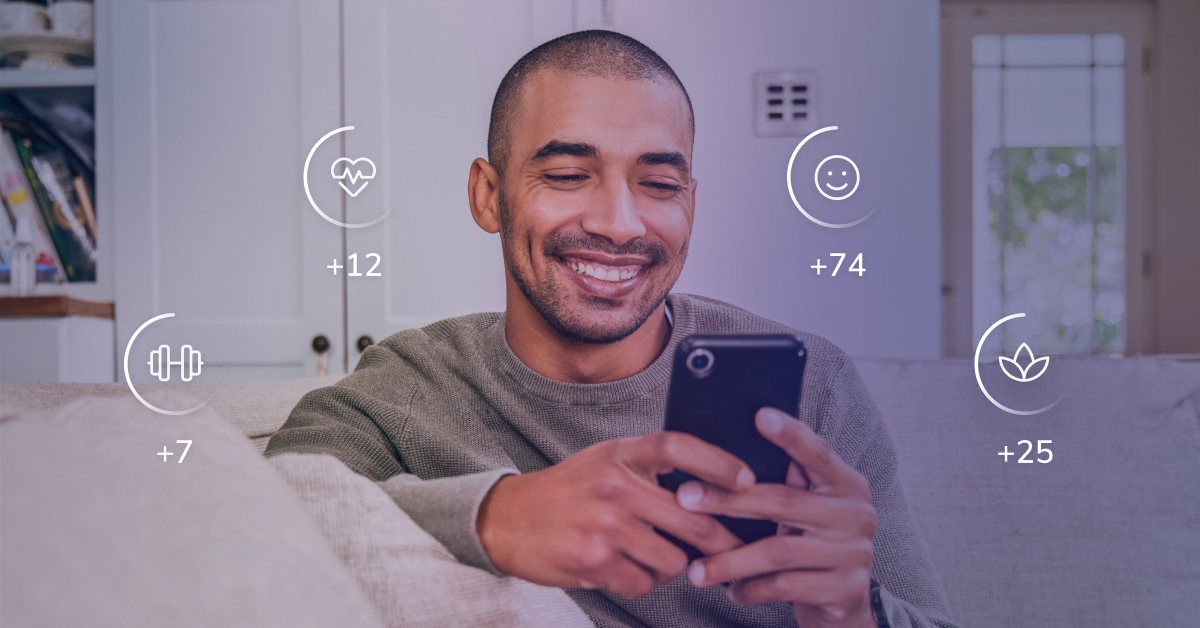Emergent Healthcare Expectations of Gen Z

For a while now, healthcare systems have focused on Baby Boomers, Gen X, and Millennials as their target audience. This leaves out a very prominent and fast-growing segment of the population: Gen Z. This group accounts for nearly 32% of the global population (2 billion individuals worldwide) and are poised to overtake Baby Boomers in the full-time workforce very soon.
It won’t be long before Gen Z is the largest generational cohort on the planet, which makes it even more critical for healthcare organizations to tailor future programs such as patient care, insurance, marketing, and even technology efforts towards this coming of age generation. In all likelihood, the Gen Z population will be determining what the future of healthcare looks like.
Gen Z’s expectations are reshaping healthcare, setting a new standard for what it means to deliver not just care—but the right care, at the right time, and in the right way. Providers must recognize and adapt to these emerging trends by offering personalized, transparent, and accessible services. Sustainable and ethical practices, combined with the intelligent use of technology, will set the standard for healthcare experiences that resonate with this generation.
Much of Gen Z are not yet on their own health insurance coverage, but healthcare organizations can start to make changes now to better prepare for the future. From digital solutions and personalization to convenience and ethical considerations, understanding Gen Z is key to future growth in the healthcare space.
Tech-Driven Healthcare Expectations
In an age of technology advancements, Gen Z is at the forefront of usage compared to any other demographic cohort. These digital natives grew up in an era characterized by rapid technological advancements, instant access to information, and an increased focus on personalized experiences. These developments have significantly shaped their expectations and experiences, and has made them early adopters of new tech and digital platforms. Gen Z owns an average of 13 technology products (out of 32 products surveyed) in their household. They report using six technology products daily and spend around 12 hours using them.
Other traits of Gen Z that are important for healthcare organizations to consider include the desire to easily find information, placing the utmost importance on personalization, and having social influence sway their buying decisions. They want the power to choose and a vast amount of options to select from to fit their unique needs. Thanks to services like Spotify recommending songs or Netflix watch suggestions, they are accustomed to customized experiences in almost every aspect of their lives. This applies to different areas of the healthcare journey, as well, such as finding and selecting a care provider, bill pay options, managing health goals, selecting and understanding insurance plans, and even appointment types, including tele-health. Gen Z will look for digital tools to manage health proactively, book appointments, receive reminders, and even consult with doctors via telehealth platforms. Whether it's individualized treatment plans or AI-driven health monitoring apps, personalized healthcare isn't just a preference — it's becoming a necessity. They desire and expect the same level of personalization they receive in other industries from their healthcare providers.
Growing up with easy access to a vast amount of information, this generation also expects transparency and accessibility of information, and we see that in their social media usage, news preferences, brands they choose to support, and buying expectations. Gone are the days of brand loyalty for 30+ years. From same-day deliveries to instant messaging, they are accustomed to the ease and speed of modern life. The expectation is that healthcare is no different. Long wait times for appointments, delayed lab results, and complicated processes are huge turn-offs. Technology plays a huge role in enabling easy access to digestible information. User-friendly systems for booking appointments, getting prescriptions, and accessing medical records will be expected and providers that offer seamless integration with wearable health tech and remote monitoring tools will have the upper hand.
Gen Z is also highly conscious of overall well-being and preventative care. They prefer a holistic approach to health that considers diet, exercise, mental health, and preventive measures. Along this line of thinking is the notion of value-based care, a healthcare model that emphasizes quality of care for patients, improved patient experiences, and better provider performance. Instead of the traditional fee-for-service care we are currently receiving, value-based care allows medical groups within the same network to coordinate care together. This model is also more holistic in the way the doctors work together with the patient to educate on the diagnosis as well as prevent and personalize the treatment prescribed. Instead of feeling confusion, frustration, and mis-information by conflicting doctor and specialist treatments, this approach is coordinated and focuses on working with the patient. Providers who offer comprehensive wellness programs, nutrition advice, fitness plans, and regular check-ups—aimed at preventing ailments rather than just treating them will lead to a more sustainable and effective healthcare system for all.
The Impact of Social Media
Gen Z, known for being especially digitally savvy, turns to social media for information and educational resources, including healthcare-related content. So why is social media a preferred source for Gen Z when it comes to healthcare advice? Simply put, it's because of its quick access to information, variety of perspectives on any given topic, and the lack of comprehensive healthcare education in schools. Navigating the complexities of healthcare – including choosing an insurance plan, booking doctor appointments, and understanding coverage options, can be daunting for Gen Z as they transition into adulthood.
The rise of "health influencers" — professionals like doctors, dieticians, surgeons, and dentists — on social media has contributed to the dissemination of healthcare information. However, their content often requires critical evaluation to ensure accuracy. Social media presents an opportunity to provide Gen Z with accessible, educational content that helps demystify healthcare processes, clarify medical terminology, and more.
Transparency and trust are essential not only in the healthcare services provided but also in the information shared. As healthcare providers, ensuring that credible sources combat misinformation is crucial in today's digital age. Facilitating easy access to reliable information — whether through social media platforms, video content, online communities, or support groups — can build user trust and instill confidence in healthcare decisions.
Ultimately, providing information in a clear, digestible format is key to empowering Gen Z and enhancing their healthcare journey.
Challenges and Opportunities for Healthcare Organizations
As Gen Z continues to come of age, their expectations and preferences will inevitably shape the future of healthcare. The question is no longer whether healthcare should change but how quickly it can do so to meet the demands of an increasingly influential generation. This creates a wide array of opportunities for healthcare providers, along with some challenges. Even today, we face many challenges and discussions around data privacy and security. With Gen Z’s digital savvy nature, these concerns aren’t going anywhere anytime soon. This poses an action item for healthcare providers and institutions to ensure they have secure platforms in place and robust data protection measures.
Gen Z will dictate new advancements in technology, personalized medical and care plans, along with AI and machine learning integration – in chat bots, appointment booking, and prescription management. Healthcare providers who understand and embrace these expectations will not only meet the needs of Gen Z but will also pave the way for a healthier, more connected future.


